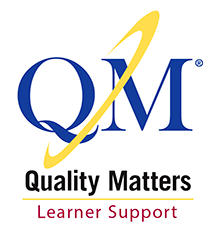Nationally recognized for student experience
The Wall Street Journal

Master of Arts (M.A.)
Financial Economics
The Master of Financial Economics program combines experiential learning and academic rigor to develop advanced knowledge and skills in the financial, economic and banking sector. The program provides opportunities for internships and directed research projects before graduation, significantly increasing graduates’ competitiveness in the job market.
Graduates seek advanced career opportunities in these fields or pursue a doctorate in economics or finance.
Students can earn a master’s degree in as few as 12 MONTHS
#1 public university in Ohio for career prep
The Wall Street Journal
Career opportunities
This program is ideal for students seeking advanced career opportunities in finance, economics or banking in positions such as financial analyst, banking manager, research assistant or data analyst. Graduates are currently making a difference at institutions such as the Federal Reserve Bank of Cleveland, Huntington Bank, Key Bank and other leading companies.
Many graduates also pursue a research path and have gained entrance into leading doctoral programs.
Quick Facts from the Bureau of Labor Statistics
Curriculum
To obtain a Master's of Arts degree in Financial Economics, students are required to complete 30 credit hours of coursework at the graduate level. Given that most courses are 3 credit hours, that means one needs to take minimum 10 courses. Please refer to the Bursar Department for current information on tuition and fees.

Sample courses
- Econometrics
- Investment Analysis and Management
- Financial Modeling
- Graduate Econometrics
- Microeconomic Theory
- Macroeconomic Theory
- Central Banking and the Financial System
- Internship or Directed Research
Advance your career
This program is ideal for students seeking advanced career opportunities in finance, economics or banking in positions such as financial analyst, banking manager, research assistant or data analyst. Graduates are currently making a difference at institutions such as the Federal Reserve Bank of Cleveland, Huntington Bank, Key Bank and other leading companies.
Many graduates also pursue a research path and have gained entrance into leading doctoral programs.
Application Requirements
The program strongly recommends that applicants have a minimum 3.0 undergraduate grade point average (GPA) and at least one undergraduate course in each of the following disciplines: calculus, economics and statistics. Applicants are required to submit an official transcript from all colleges and universities attended.
All applicants must submit three letters of recommendation.
International applicants are also required to submit scores from the Test of English as a Foreign Language (TOEFL) or the International English Language Testing System (IELTS).
 BGSU is one of only a handful of universities in the nation — and the only one in Ohio — to earn the Quality Matters Online Learner Support certificate for all of our online programs. This recognition reflects our commitment to providing the critical support and academic services that online students need to succeed.
BGSU is one of only a handful of universities in the nation — and the only one in Ohio — to earn the Quality Matters Online Learner Support certificate for all of our online programs. This recognition reflects our commitment to providing the critical support and academic services that online students need to succeed.
#1 university in Ohio – big or small, public or private – students would choose again
The Wall Street Journal
The Master of Financial Economics program is part of the BGSU Graduate College and BGSU Schmidthorst College of Business
Accreditation
Bowling Green State University [BGSU] is accredited by the Higher Learning Commission. BGSU has been accredited by the Higher Learning Commission since 01/01/1916. The most recent reaffirmation of accreditation was received in 2022-2023, with our next reaffirmation of accreditation scheduled for 2032-2033. Questions should be directed to the Office of Institutional Effectiveness.
Request Information
Updated: 10/23/2025 09:25AM

